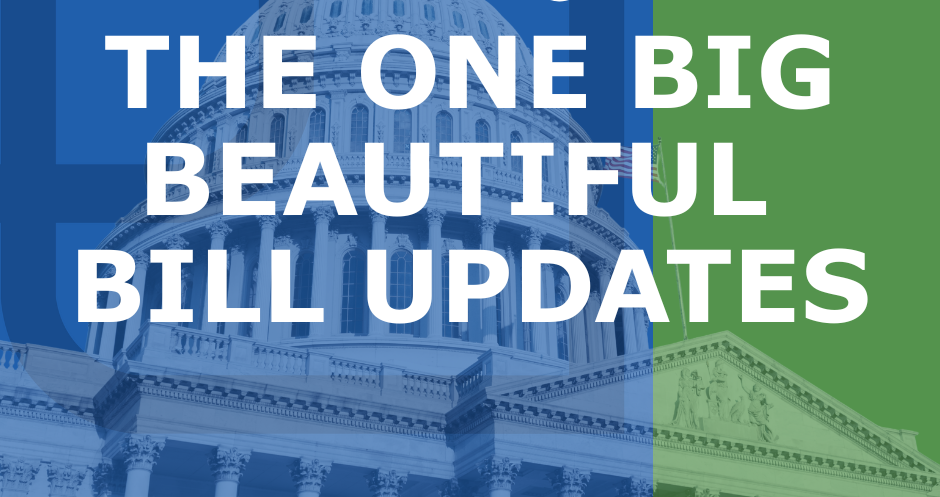The One Big Beautiful Bill Act (OBBBA), signed into law in 2025, brings significant changes to the federal tax rules, including how state and local taxes (SALT) are deducted by both individuals and businesses. If you own or operate a business, understanding these changes is important for your tax planning and bottom line.
This article breaks down what’s new, what stays the same, and what it could mean for your business.

What Is the SALT Cap?
The SALT cap refers to the limit on how much state and local taxes you can deduct from your federal taxable income. Before 2018, individuals could generally deduct all their state and local income and property taxes if they itemized deductions. The Tax Cuts and Jobs Act (TCJA) of 2017 changed that, capping the deduction at $10,000 per year for individuals and married couples filing jointly, and $5,000 for married individuals filing separately, for tax years 2018 through 2025. This cap did not apply to taxes paid in connection with a trade or business.
What Did OBBBA Change About the SALT Cap For Businesses?
The most important point for business owners is that the SALT cap does not apply to state and local taxes paid in connection with a trade or business. This means:
If your business is a corporation, partnership, or sole proprietorship, and it pays state or local taxes that are directly related to business activities (such as state income taxes on business income, property taxes on business property, or sales taxes paid in the course of business), those taxes remain fully deductible as business expenses.
The $40,000 (or $10,000 after 2029) cap applies only to personal (non-business) state and local taxes deducted on Schedule A of your individual tax return.
Key Takeaway: The OBBBA did not change the longstanding rule that business-related state and local taxes are not subject to the SALT cap. The cap continues to apply only to personal, non-business taxes.
What About Passthrough Entities and SALT Cap Workarounds?
Many states have enacted "passthrough entity tax" (PTE) regimes as a workaround to the SALT cap. These allow partnerships and S corporations to pay state income tax at the entity level, which is then fully deductible as a business expense, and provide a credit or deduction to the owners on their state returns. The IRS has approved this workaround, and it remains in effect under OBBBA.
If your business is a partnership or S corporation, and your state offers a PTE tax election, you can continue to use this strategy to maximize your federal deduction for state taxes.
The rules for these elections vary by state, and there are technical details to consider, especially for S corporations and multi-state businesses.
Are There Any New Limitations for Businesses?
OBBBA did not introduce new limitations on the deductibility of state and local taxes paid in connection with a trade or business. The cap remains focused on personal taxes. However, there is ongoing discussion in the tax policy world about whether Congress might, in the future, limit the business deduction for state and local taxes as a way to raise revenue or address perceived loopholes.
What Should Business Owners Do Now?
- Continue to Deduct Business SALT: You can still deduct all state and local taxes paid in connection with your business.
- Consider PTE Elections: If you own a partnership or S corporation, talk to your tax advisor about whether making a PTE election in your state makes sense for you.
- Stay Informed: The IRS and Treasury Department are expected to issue further guidance on these rules, especially as states continue to innovate with new tax regimes.
Final Thoughts
The OBBBA made the SALT cap more generous for individuals for a few years, but did not change the rules for businesses. Business owners can continue to deduct state and local taxes paid in connection with their trade or business without worrying about the cap. However, the landscape is complex and evolving, especially for passthrough entities and multi-state businesses.
Important: These are all new changes, and further guidance from the IRS and Treasury Department is expected. The details may change as new regulations and clarifications are issued. Be sure to consult with your tax advisor to understand how these changes affect your specific situation.
RUDLER, PSC CPAs and Business Advisors
This week's Rudler Review is presented by Alexis Ludtke, CPA.
If you would like to discuss your particular situation, contact Alexis at 859-331-1717.

As part of Rudler, PSC's commitment to true proactive client partnerships, we have encouraged our professionals to specialize in their areas of interest, providing clients with specialized knowledge and strategic relationships. Be sure to receive future Rudler Reviews for advice from our experts, sign up today !